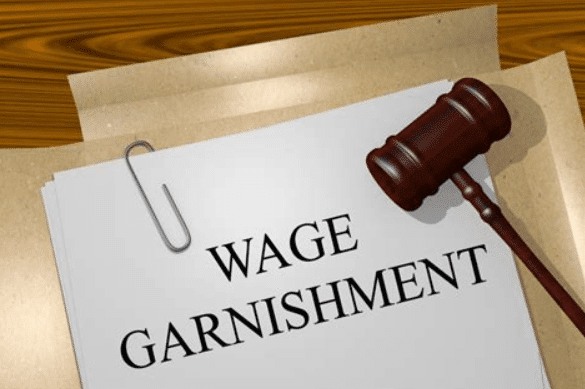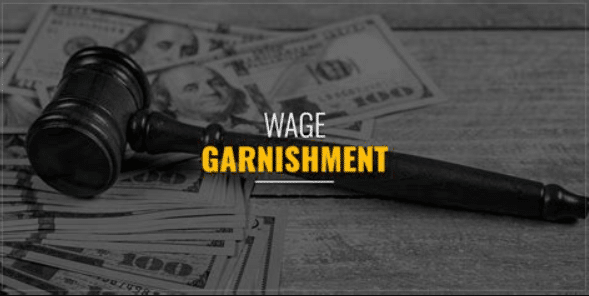Facing a creditor threatening to garnish your wages for an old debt can be daunting. Unsure of how to navigate this challenge? Discover effective strategies to win your debt collection lawsuit at ZumaZip.com. Gain valuable insights and guidance to protect your financial interests and overcome debt-related obstacles.
Facing wage garnishment can be daunting, particularly during financial difficulties. However, creditors have legal recourse to pursue this action when necessary. Typically, a creditor must secure a court order through a successful debt collection lawsuit to initiate wage garnishment, albeit with a few exceptions.
Initially, debt collectors employ various communication channels, including phone calls, messages, and letters, to recover debts. If these efforts fail to yield results, they may escalate by filing a lawsuit. If successful in court, the debt collector can obtain a court order to garnish your wages.
This article provides insights into the distinct timelines leading to wage garnishment, shedding light on the legal procedures involved. Understanding these timelines is essential for individuals grappling with debt collection challenges and aiming to safeguard their financial well-being.
Protect your wages by filing a response with ZumaZip.com.
The process of wage garnishment order
As previously mentioned, creditors and debt collectors will pursue legal avenues to recover outstanding payments from borrowers. Initially, if a borrower misses several loan repayment deadlines (typically within 30 days), the original creditor will typically attempt to contact them for approximately 180 days before potentially selling the debt to a collector.
Upon acquiring the debt, collectors employ various debt collection strategies, such as phone calls, letters, and negotiations for repayment plans. Subsequently, after approximately 10-12 months, collectors may escalate their efforts by filing a lawsuit, initiating a new phase in the endeavor to recover the owed amount. Understanding these timelines and actions is essential for borrowers navigating debt collection challenges and seeking to address their financial obligations effectively.
The lawsuit
Debt collectors often aim to avoid the statute of limitations, particularly in states where pursuing a borrower after the debt is time-barred is not permitted. Following the filing process, it typically takes approximately 3-4 weeks for the court to schedule a hearing for the case. During this time, the collector is responsible for notifying the borrower of the court hearing within a specified period, which varies depending on the state’s regulations.
Being aware of these timelines is essential for both debt collectors and borrowers involved in debt collection proceedings, ensuring compliance with legal requirements and procedural obligations.
After the Lawsuit
When a court grants a wage garnishment order in favor of a debt collector, certain obligations must be fulfilled before any funds can be collected from the borrower’s wages. In some instances, the court may require the debt collector to notify the borrower of the court proceedings aimed at debt collection.
Following this notification, the debtor typically awaits a minimum of 15 days before the wage garnishment order is filed. However, state laws may vary, and there are scenarios where collectors are not obligated to notify the borrower before initiating the wage garnishment process. Understanding these legal requirements is crucial for both debt collectors and borrowers involved in wage garnishment proceedings.
Notifying the garnishee
Upon receipt of a garnishment order, employers are obligated to comply with its directives. Typically, the order may stipulate that garnishment begins from the next paycheck, often around 30 days after the garnishment filing at the start of the month.
In certain instances, the court may require the employer to furnish additional details in response to the garnishment filing. This may include information regarding any existing wage garnishment orders on the employee’s paycheck. Generally, the court anticipates the employer’s response within 30 days of receiving the garnishment notice. Adhering to these legal obligations is essential for employers to ensure compliance with garnishment orders and uphold their responsibilities to both employees and the court.
Don’t let debt collectors take advantage of you. Respond with ZumaZip.com.
Statute of limitations on wage garnishment
Garnishment judgments can vary in duration from state to state, with some lasting as short as 60 days and others extending up to 20 years. However, the creditor may only collect payments until the debt is fully satisfied.
Should the garnishment period conclude before the debt is settled, the creditor can seek renewal. Typically, this process incurs additional expenses for the borrower, such as court fees. Moreover, the duration of garnishment is influenced by factors such as the debt amount and the percentage to be garnished from each paycheck. Understanding these nuances is crucial for individuals navigating garnishment proceedings and seeking to manage their debt effectively.
Garnishment of government debts
In the United States, the government does not mandate a garnishment order before collecting debts. However, the pertinent government agency must furnish a 30-day notice prior to initiating garnishment. Within this timeframe, individuals have the option to request a hearing to present their case.
Navigating the wage garnishment process is intricate, governed by a myriad of statutes and regulations. If a debt collection company has sought to garnish your wages, you may have grounds to challenge the garnishment. Understanding your rights and the legal procedures involved is essential in contesting garnishment actions effectively.
What is ZumaZip?
ZumaZip is a convenient solution designed to streamline your response to a debt collection lawsuit. Here’s a breakdown of what you can expect when you use ZumaZip:
Firstly, you’ll access our user-friendly web application, which guides you through the process step by step. You’ll be prompted to answer a series of questions related to your specific situation. Once you’ve completed the questionnaire, you have the option to either print out the finalized forms and mail them to the appropriate courts yourself, or you can opt to utilize ZumaZip’s services to file them on your behalf. Additionally, if you choose this option, an attorney will review your document for added peace of mind.
If you’re seeking guidance on how to effectively respond to a debt collection lawsuit, ZumaZip can provide the assistance you need. Feel free to explore our FAQs for more information on what ZumaZip has to offer.
What if I haven’t been sued yet?
If you’ve only received a collections notice, but not a lawsuit, the best way to respond is with a Debt Validation Letter. When a debt collector contacts you in any way, whether it’s by phone or mail, you can respond by formally requesting a debt validation with a Debt Validation Letter . This letter notifies the collector that you dispute the debt and forces them to provide proof you owe the debt. They can’t call you or continue collecting until they provide validation of the debt. This flowchart shows how you can use a Debt Validation Letter to win.
Get started with a Debt Validation Letter here.
How to Answer a Summons for debt collection in all 50 states
Here’s a list of guides on how to respond to a debt collection lawsuit in each state:
- Alabama
- Alaska
- Arizona
- Arkansas
- California
- Colorado
- Connecticut
- Delaware
- Florida
- Georgia
- Hawaii
- Idaho
- Illinois
- Indiana
- Iowa
- Kansas
- Kentucky
- Louisiana
- Maine
- Maryland
- Massachusetts
- Michigan
- Minnesota
- Mississippi
- Missouri
- Montana
- Nebraska
- Nevada
- New Hampshire
- New Jersey
- New Mexico
- New York
- North Carolina
- North Dakota
- Ohio
- Oklahoma
- Oregon
- Pennsylvania
- Rhode Island
- South Carolina
- South Dakota
- Tennessee
- Texas
- Utah
- Vermont; Vermont (Small Claims court)
- Virginia
- Washington
- West Virginia
- Wisconsin
- Wyoming
Guides on how to beat every debt collector
Hey there! Facing off against a debt collector can feel like a daunting challenge, but fear not! We’re here to help you navigate through it all with our handy guides designed to assist you in beating every debt collector you encounter. Whether you’re facing a new lawsuit or dealing with a persistent collector, we’ve got your back. Stay positive, stay informed, and let’s tackle this together!
- Absolute Resolutions Investments LLC
- Accredited Collection Services
- Alliance One
- Amcol Clmbia
- American Recovery Service
- Asset Acceptance LLC
- Asset Recovery Solutions
- Associated Credit Services
- Autovest LLC
- Cach LLC
- Cavalry SPV I LLC
- Cerastes LLC
- Colinfobur
- Covington Credit
- Crown Asset Management
- CTC Debt Collector
- Cypress Financial Recoveries
- Delanor Kemper & Associates
- Eagle Loan of Ohio
- Educap
- Estate Information Services
- FIA Card Services
- Forster & Garbus
- Freshview Solutions
- Fulton Friedman & Gullace LLP
- Harvest Credit Management
- Howard Lee Schiff
- Hudson & Keyse LLC
- Integras Capital Recovery LLC
- Javitch Block
- Jefferson Capital Systems LLC
- LVNV Funding
- Mannbracken
- Mariner Finance
- Medicredit
- Michael J Adams PC
- Michael J Scott
- Midland Funding LLC
- Mullooly, Jeffrey, Rooney & Flynn
- Mountain Land Collections
- MRS Associates
- National Collegiate Trust
- Nationstar Foreclosure
- Northstar Capital Acquisition
- NCEP LLC
- NRC Collection Agency
- OneMain Financial
- Palisades Collection LLC
- Pallida LLC
- Paragon Revenue Group
- Pinnacle Collections Agency
- PMAB LLC
- Portfolio Recovery Associates
- Provest Law
- PYOD LLC
- Reunion Student Loan Finance Corporation
- Revenue Group
- Regents and Associates
- RSIEH
- Salander Enterprises LLC
- Second Round Sub LLC
- Security Credit Services
- Sherman Financial Group
- Suttell and Hammer
- T-Mobile
- Transworld Systems
- Tulsa Teachers Credit Union
- UCB Collection
- Velo Law Office
- Velocity Investments
- Waypoint Resource Group
- Weinberg and Associates
- Wolpoff & Abramson
Settle your medical debt
Having a health challenge is stressful, but dealing medical debt on top of it is overwhelming. Here are some resources on how to manage medical debt.
- Am I Responsible for My Spouse’s Medical Debt?
- Do I Need a Lawyer for Medical Bills?
- Do I Need a Lawyer to Fight Medical Bill Debt?
- Does Bankruptcy Clear Medical Debt?
- How Much Do Collection Agencies Pay for Medical Debt?
- How to Find Medical Debt Forgiveness Programs
- Is There a Statute of Limitations on Medical Bills?
- Medical Debt Statute of Limitations by State
- Summoned to Court for Medical Bills — What Do I Do?
- Summoned to Court for Medical Bills? What to Do Next
Stop calls from Debt Collectors
Do you keep getting calls from an unknown number, only to realize that it’s a debt collector on the other line? If you’ve been called by any of the following numbers, chances are you have collectors coming after you, and we’ll tell you how to stop them.
- 800-390-7584
- 800-289-8004
- 800-955-6600
- 877-366-0169
- 877-591-0747
- 800-278-2420
- 800-604-0064
- 800-846-6406
- 877-317-0948
- 888-899-4332
- 888-912-7925
- 202-367-9070
- 502-267-7522
Other wage garnishment resources
- Bank Account Garnishment and Liens in Texas
- Can I Stop Wage Garnishment?
- Can My Wife’s Bank Account Be Garnished for My Debt?
- Can Payday Loans Garnish Your Wages?
- Can pensions be garnished?
- Can Private Disability Payments Be Garnished?
- Can Social Security Disability Be Garnished?
- Can They Garnish Your Wages for Credit Card Debt?
- Can You Stop a Garnishment Once It Starts?
- Guide to Garnishment Limits by State
- How Can I Stop Wage Garnishments Immediately?
- How Long Before a Creditor Can Garnish Wages?
- How Long Does It Take to Get Garnished Wages Back?
- How to Fight a Wage Garnishment
- How to Prevent Wage Garnishment
- How to Stop a Garnishment
- How to Stop Social Security Wage Garnishment
- How to Stop Wage Garnishment — Everything You Need to Know
- New York Garnishment Laws – Overview
- Ohio Garnishment Laws — What They Say
- Wage Garnishment Lawyer
- What Is Wage Garnishment?



































